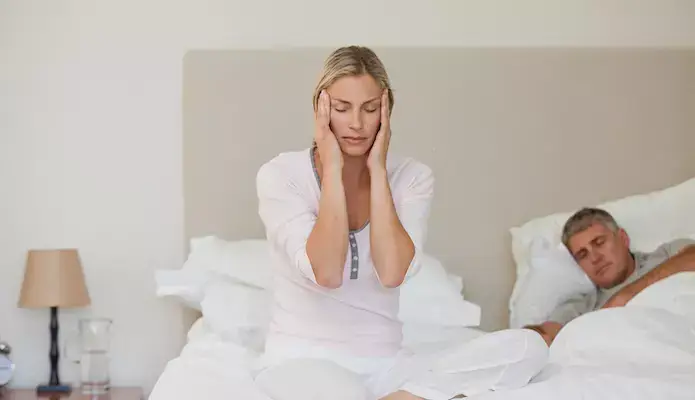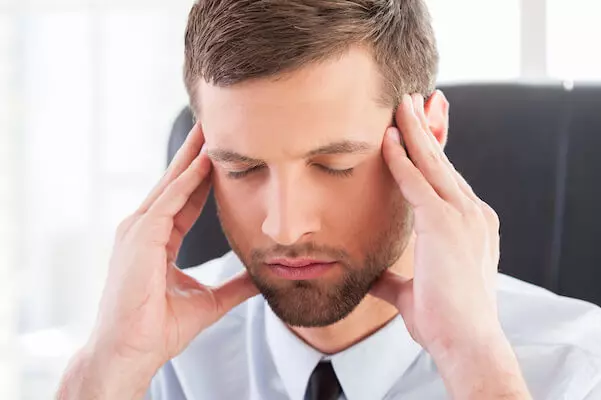Rick Factors & Causes Of Sleep Apnea
Rick Factors & Causes Of Sleep Apnea
 Are you struggling to get enough sleep? Do you wake up tossing and turning? Are you frequently tired during the day? Or are your loved ones complaining about snoring? If so, you may be suffering from sleep apnea.
Are you struggling to get enough sleep? Do you wake up tossing and turning? Are you frequently tired during the day? Or are your loved ones complaining about snoring? If so, you may be suffering from sleep apnea.
Working with a sleep apnea expert, such as Dr. Brian McDowell, who has 30+ years of experience and advanced training to treat sleep-disordered breathing with oral appliance therapy as an alternative to CPAP therapy. You will be able to identify sleep apnea and the underlying conditions and factors causing it. From there, you can identify the appropriate prevention and treatment plan.
Causes Sleep Apnea
Sleep apnea is caused when the muscles or soft tissue in the back of your throat relax. This movement of tissue obstructs the airway, which can then cause a wide range of factors and conditions. Effective treatment requires first identifying the cause of sleep apnea, so proper diagnosis is vital.
Sleep apnea can also result from other medical conditions. Conditions such as asthma and chronic obstructive pulmonary disease, also known as COPD, obstruct the upper airways. Circulatory conditions, including diabetes mellitus and congestive heart failure, are known to be present in many people who have sleep apnea. Hormones may also play a part in developing this sleeping disorder, as menopausal women and those with polycystic ovary syndrome (PCOS) have a greater chance of experiencing sleep apnea.
Risk Factors for Sleep Apnea
While some medical conditions increase a person’s risk of sleep apnea, other risk factors predispose people to this condition. Some risk factors of sleep apnea include:
- Obesity – Substantial research supports the link between obesity and sleep apnea. This link is primarily due to excess fat around the neck and face that can constrict the airways. Studies show that around 70% of individuals with obstructive sleep apnea are obese.
- Sleeping position – Some sleeping positions may increase your risk of sleep apnea. We recommend that someone at risk of sleep apnea sleeps on their side since this improves bodily circulation and reduces the likelihood of snoring. Another good option is stomach sleeping, which allows gravity to pull down on the throat muscles and works in your favor by keeping the airways open.
- Inherited – It’s possible to inherit sleep apnea. Researchers believe genetics can contribute quite heavily to the development of sleep apnea. Studies show that 40% of a person’s risk for sleep apnea is because of their genetics. In comparison, the remaining 60% is due to lifestyle factors.
- TMJ Disorders – Problems with your temporomandibular joint, including injuries and arthritis, may indicate the presence of sleep apnea.
- Smoking – Smoking of any kind serves as an irritant to the upper respiratory system. This irritation can lead to dryness and swelling, which only worsens someone’s likelihood of having an obstructed airway.
- Nasal Congestion – Someone with acute or chronic nasal congestion will experience much resistance in the airway. Doctors have found that, by simulating nasal congestion, individuals demonstrated sleep symptoms such as snoring, shallow breathing, and apnea. Individuals with chronic nasal congestion are twice as likely to experience sleep apnea symptoms.
- Alcohol – Alcohol can not only worsen cases of sleep apnea but this substance is also known to cause apnea. Alcohol and other sedatives decrease someone’s need to breathe, which is already a concern for those with sleep apnea. Someone who frequently drinks alcohol will experience slowed breathing and even more relaxed muscles, which can lead to a collapsed airway.
- Hormonal Abnormalities – Individuals who do not produce enough melatonin will struggle with their sleep-wake cycles and have a greater risk of experiencing sleep apnea. Studies also show that low estrogen and progesterone levels can bring about sleep apnea since these two hormones help with muscle maintenance necessary to keep the airway intact.
Various other conditions and factors can contribute to developing sleep apnea. Without treatment, sleep apnea can have profound health consequences. Furthermore, medical conditions such as heart disorders can be severe. That’s why it’s important to discuss your situation with a sleep apnea expert, such as Dr. Brian McDowell, so you may get help treating your sleep apnea.

 A nightguard is an oral device worn while sleeping to protect your teeth and jaw from clenching and grinding. Over time clenching and grinding can cause unnecessary wear on the teeth, sometimes leading to chips, cracks, and even tooth loss.
A nightguard is an oral device worn while sleeping to protect your teeth and jaw from clenching and grinding. Over time clenching and grinding can cause unnecessary wear on the teeth, sometimes leading to chips, cracks, and even tooth loss. If you have ever woken up with a sore jaw, sensitive teeth, or a headache, you might have experienced bruxism. Bruxism, teeth grinding, is a condition where an individual grinds, gnashes, or clenches their teeth, typically unconsciously. Understanding the relation between
If you have ever woken up with a sore jaw, sensitive teeth, or a headache, you might have experienced bruxism. Bruxism, teeth grinding, is a condition where an individual grinds, gnashes, or clenches their teeth, typically unconsciously. Understanding the relation between  Everybody gets bad breath at times. But for people with chronic bad breath, it can indicate something more serious, like gum disease or a tooth infection. Brian C. McDowell, DDS can help treat the underlying causes of bad breath so you can enjoy fresh breath and a clean taste in your mouth.
If you are looking to treat chronic bad breath in Fitchburg, call our dentist, Dr. Brian McDowell at call
Everybody gets bad breath at times. But for people with chronic bad breath, it can indicate something more serious, like gum disease or a tooth infection. Brian C. McDowell, DDS can help treat the underlying causes of bad breath so you can enjoy fresh breath and a clean taste in your mouth.
If you are looking to treat chronic bad breath in Fitchburg, call our dentist, Dr. Brian McDowell at call  You or someone you know may snore while sleeping. You may find yourself wondering why your husband or wife snores so loud? While most people regard snoring as a natural bodily function, it could also indicate other health complications. Snoring is the first sleep apnea indicator, a condition that develops when your airway is blocked while sleeping. Unfortunately, your body and brain fail to receive the proper oxygen needed to restore your body and prepare for the next day. With advanced training and over 30 years of experience, patients trust the expertise of Dr. Brian McDowell for sleep apnea evaluation in the Fitchburg area.
You or someone you know may snore while sleeping. You may find yourself wondering why your husband or wife snores so loud? While most people regard snoring as a natural bodily function, it could also indicate other health complications. Snoring is the first sleep apnea indicator, a condition that develops when your airway is blocked while sleeping. Unfortunately, your body and brain fail to receive the proper oxygen needed to restore your body and prepare for the next day. With advanced training and over 30 years of experience, patients trust the expertise of Dr. Brian McDowell for sleep apnea evaluation in the Fitchburg area.